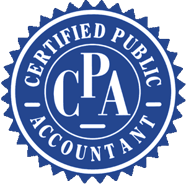Written By: MB Group
Tax season can be a chaotic and stressful time for many Americans. Each year you likely have a laundry list of questions and don’t always know where to begin to turn in order to get the answers you need. In your search you may come across a variety of options for tax professionals, but how do you know you’re choosing the right one for your tax preparation needs?
To put it shortly, CPAs are tax preparers, but all tax preparers aren’t necessarily CPAs. We're here to help differentiate a CPA vs tax preparer below.
| Criteria | Certified Public Accountant (CPA) | Tax Preparer |
|---|---|---|
| Education and Certification | A CPA is a licensed accountant who has completed extensive education and passed the Uniform CPA Exam. They must also meet ongoing education requirements to maintain their license. | A tax preparer is not required to have any formal education or certification, although some may have completed training programs or have a credential from a professional organization. |
| Services Provided | CPAs can provide a wide range of financial services, including tax planning and preparation, accounting, auditing, and financial consulting. They are qualified to handle more complex tax situations, such as those involving business ownership or investment income. | Tax preparers focus primarily on preparing tax returns and may have limited knowledge of other financial areas. They may not be equipped to handle complex tax situations. |
| Professional Standards | CPAs are held to high professional standards and must abide by a strict code of ethics. They are subject to disciplinary action if they engage in unethical behavior or violate professional standards. | Tax preparers are not held to the same level of professional standards as CPAs. While there are some professional organizations that offer credentialing programs and codes of conduct, these are not mandatory. |
| Cost | Because of their advanced education and expertise, CPAs generally charge more for their services than tax preparers. However, the cost may be justified if the CPA is able to provide more comprehensive financial guidance. | Tax preparers typically charge less than CPAs, but may not be able to provide the same level of expertise or guidance. |
| Liability | CPAs are held to a higher standard of liability than tax preparers. If a CPA makes an error or omission that causes financial harm to a client, they can be held liable for damages. | Tax preparers may have limited liability if they make errors on a tax return. However, they can still be subject to fines and penalties from the IRS if a return is incorrect. |
| Client Base | CPAs typically work with a wider range of clients, including individuals, small businesses, and large corporations. They may also provide services to non-profit organizations or government agencies. | Tax preparers tend to focus on individual clients and may have less experience working with complex business or investment tax situations. |
 When you partner with a CPA, there are boards, rules, and licensing standards which are required for your local accounting professional to meet. Certified public accountants are regulated by each state’s Board of Accountancy. The Board of Accountancy sets the standards for certified public accountants and issues licensure for the state.
When you partner with a CPA, there are boards, rules, and licensing standards which are required for your local accounting professional to meet. Certified public accountants are regulated by each state’s Board of Accountancy. The Board of Accountancy sets the standards for certified public accountants and issues licensure for the state.
CPAs are also subject to rules of professional conduct set and enforced by a state’s Board of Public Accountancy, such as:
Do you know who is doing your taxes? A tax preparer is not bound to the rules, certifications, and standards that are expected of certified public accountants. They do not need to have any specific education or qualification requirements in order to be paid to file tax returns, nor are they required to seek any type of licensing. Their main focus is on tax preparation. A tax preparer professional’s job is to calculate, prepare, and file income tax returns on behalf of their clientele. The tax relationships with non-credentialed tax preparers are often seasonal on an as needed basis.
By choosing to work with a certified public accountant for your tax preparation needs, you can rest easy knowing that you or your business will be well taken care of due to the level of education and certification that is required. Because of the seasonal nature of non-credentialed tax preparers, they do not have the opportunity to get to know you and your business on a deeper level. Ultimately, tax preparation should be integrated with a larger tax planning strategy to ensure a greater reduction of your tax liability, and a CPA is well-equipped to help you achieve that.
When you partner with the CPAs at MB Group, you get the expertise of a team of professionals who can handle all of your tax related needs. Our tax planning, tax preparation, accounting, and consulting services will save you valuable time, money, and stress so you can focus on whats important.
Tags: Taxes Tax Preparation
Whether you're a business owner or an individual, it's completely normal to request more time to file your federal income tax return. In fact, over 10 million taxpayers request tax extensions each...
Read MoreEvery year, millions of Americans file their tax returns. And, every year, thousands of them miss out on valuable tax breaks and never even know about them. Here at the MB Group, we want every client...
Read MoreSmall business owners have a lot on their plate, and taxes are just one of the many things that can easily slip through the cracks. Unfortunately, not properly managing your taxes can lead to costly...
Read More